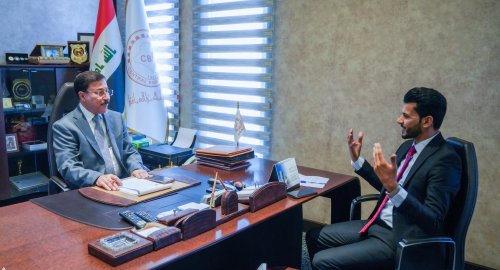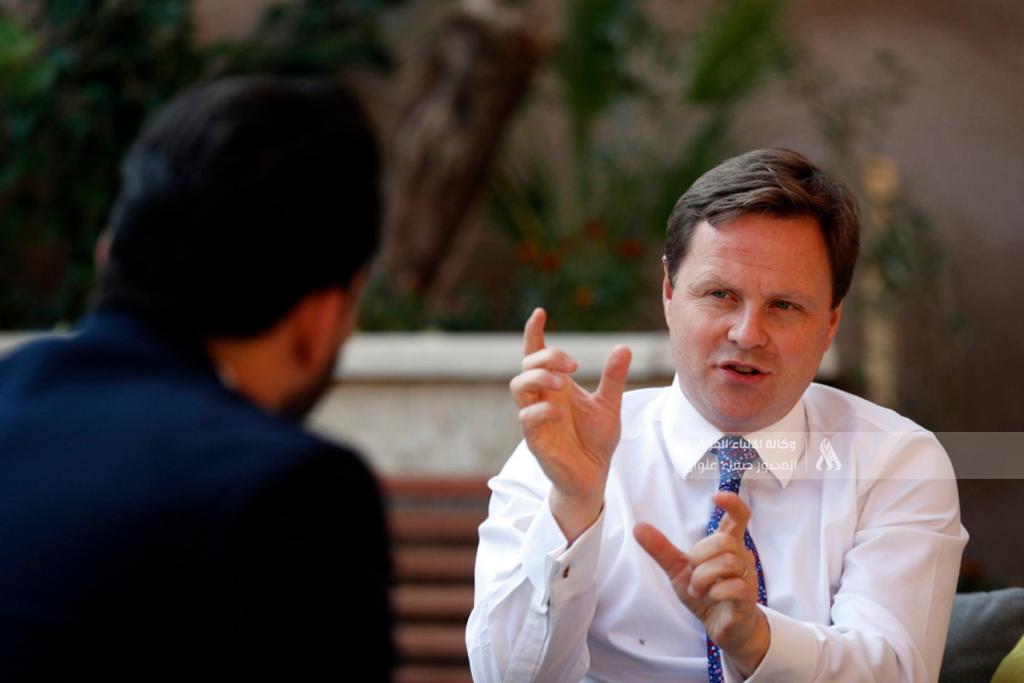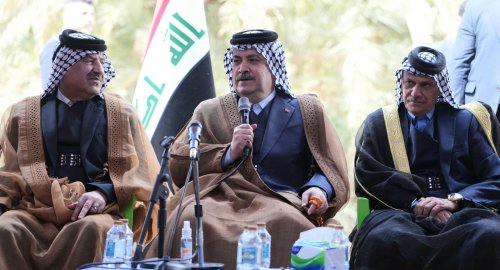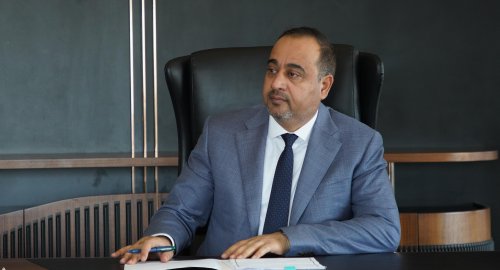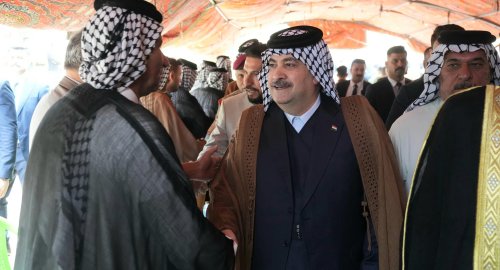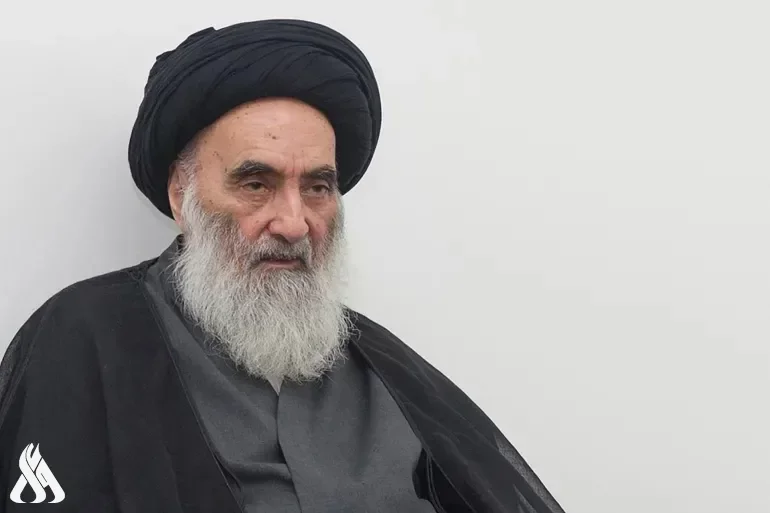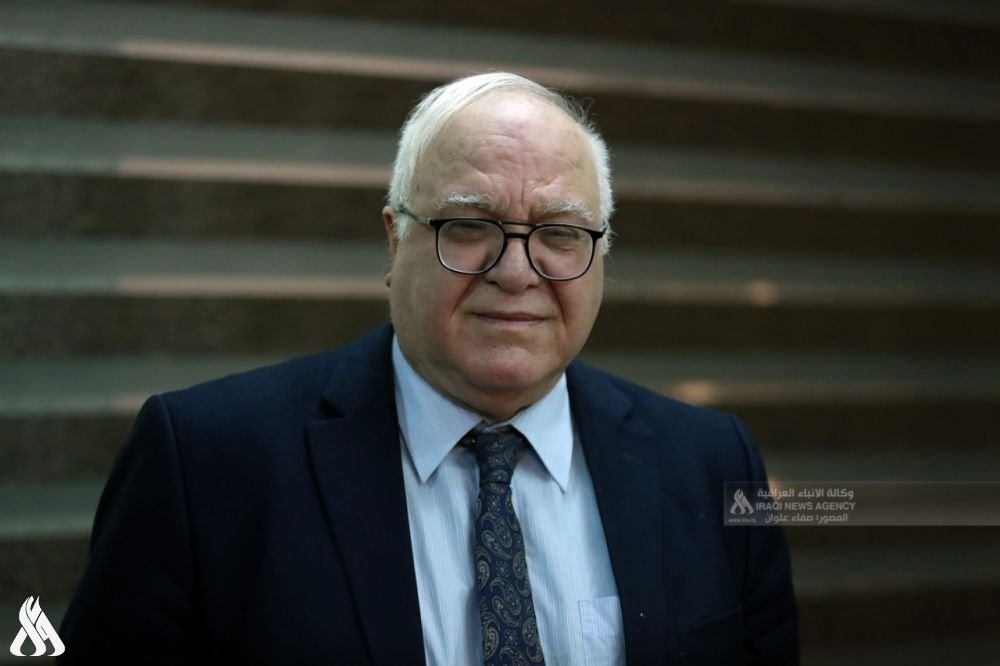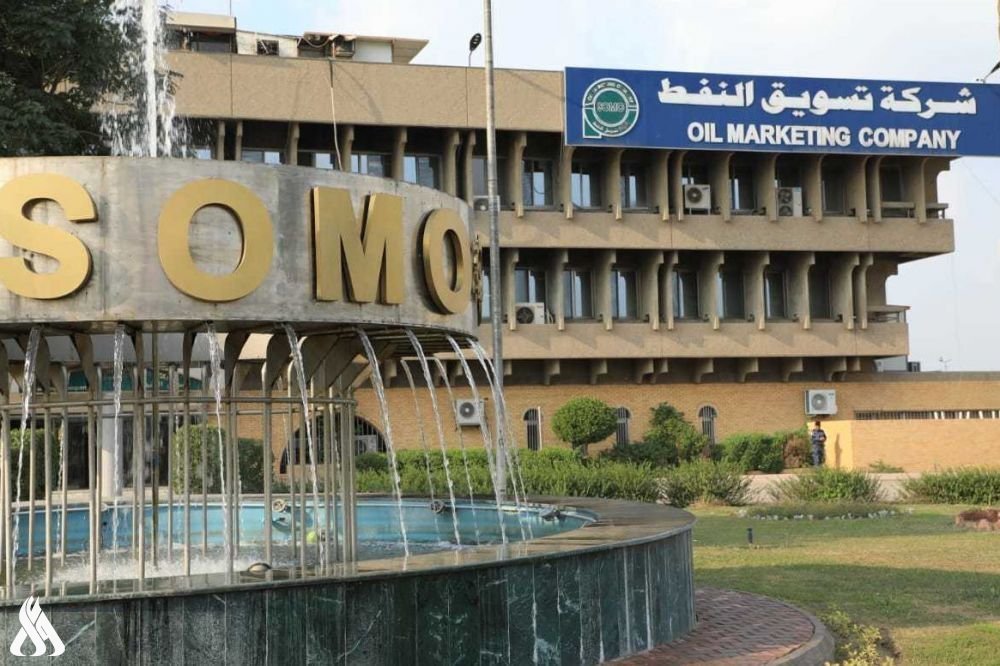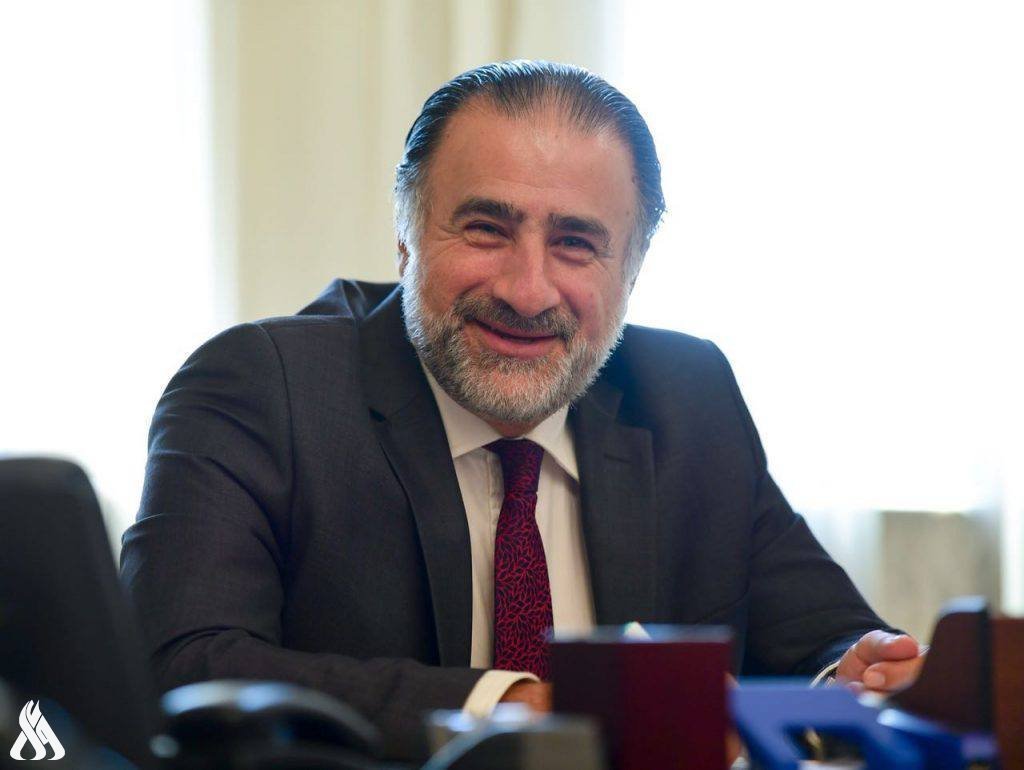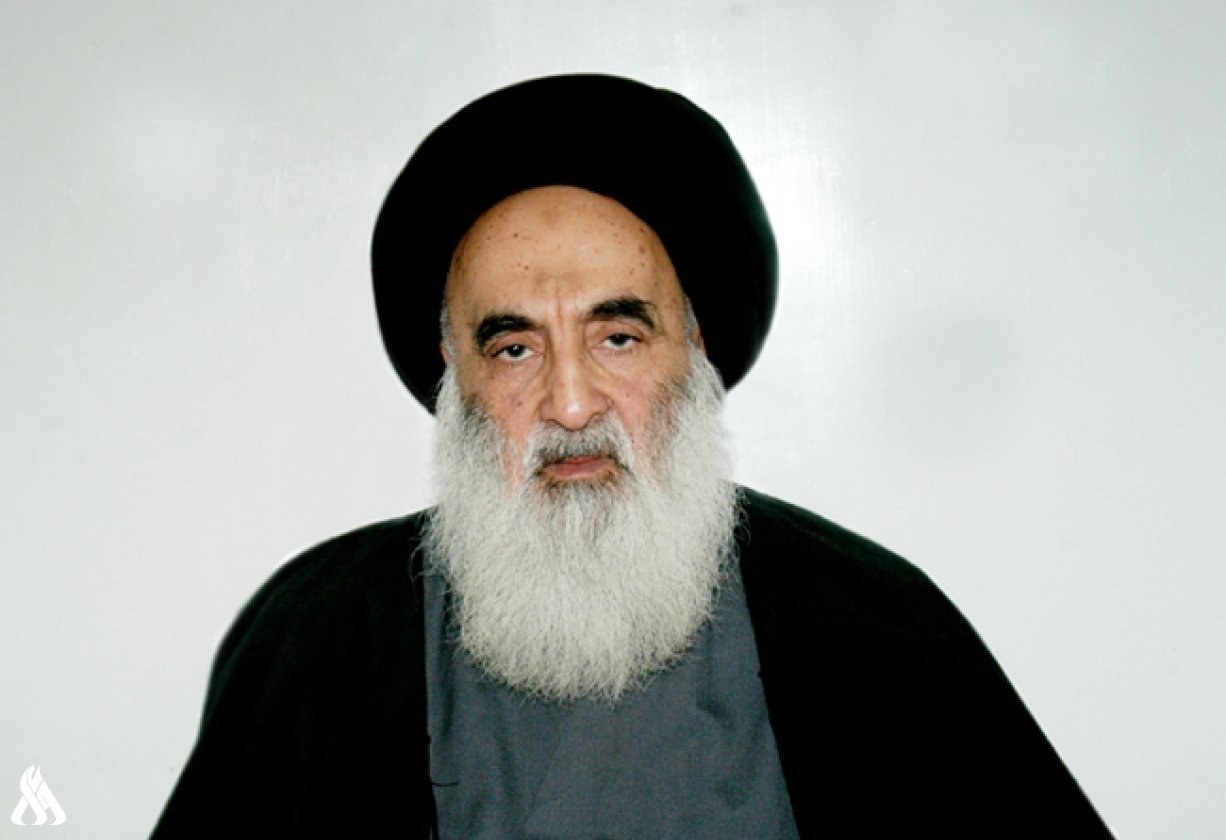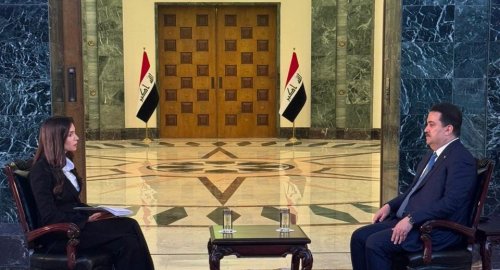
Prime Minister: The End Date of the Coalition's Mission in Iraq Will Be Announced Soon

- 17-09-2024, 11:22
Baghdad – INA
Prime Minister Mohammed Shia Al-Sudani confirmed on Tuesday, that the announcement of the end date for the International Coalition’s mission in Iraq will be made soon, noting that Iraq has transitioned from a phase of wars to one of stability.
In an exclusive interview with Bloomberg TV, followed by the Iraqi News Agency (INA), the Prime Minister said: "We will announce the end date of the International Coalition’s mission in Iraq during our participation in the international conference against ISIS," explaining that "the conclusion of the coalition’s mission in Iraq is part of the government's program."
He clarified that "the justifications for the presence of the International Coalition have ended, and there is no need for a coalition of 86 countries," adding that "based on this view and assessment, we initiated a frank dialogue with the International Coalition, which involved many discussions."
He continued: "Iraq respects the choices of the American people and we will deal with any administration that gains the confidence. It’s of interest to us to activate the strategic framework agreement and building a relationship based on the principles outlined in that agreement."
He added: "I discussed the International Coalition issue with the U.S. president in Washington, and in August of last year, we formed a bilateral committee between military commanders to initiate the dialogue."
He pointed out that "the committee reached understandings on arranging the withdrawal of the International Coalition, and it was expected that the results would be presented and announced. However, out of our keenness not to mix things or create misunderstandings about the end of the coalitions’ mission, it was decided to postpone the announcement until the participation in the international coalition conference against ISIS."
He also pointed out that "the understanding of our relationship with the United States and Iran is based on shared interests and mutual respect, and Iran has supported the political process and contributed to the defeat of ISIS."
He added that "Iraq is the only country that enjoys distinguished bilateral relations with both Iran and the United States, and through this relationship, we seek to help bringing opinions closer."
He further explained: "We do not want the actions of other countries to impact the situation in Iraq and the region; this is our strategy in terms of our bilateral and regional ties.”
He emphasized: "Iraq today is not what it was in 2014. We defeated ISIS through sacrifices and the stance of the Iraqi people, as well as support from the international community and our friends. ISIS no longer poses a threat to the state. Iraq has shifted from a phase of wars to one of stability. The presence of ISIS members hiding in caves and deserts does not rise to the level of threatening stability and security."
He clarified that "the end of the International Coalition’s mission does not mean the end of its relationship with Iraq." He confirmed, "We are engaged in discussions with the International Coalition countries to build sustainable security relationships and economic and cultural ties."
In a related context, the Prime Minister affirmed that "Iraq is an important country within OPEC, and we coordinate with our partners in OPEC+, especially with the Kingdom of Saudi Arabia, to adhere to the quotas."
He noted that "Iraq is committed to the voluntary reduction of oil exports to maintain prices and protect the interests of producers and consumers."
He continued: "Iraq committed to compensating for the slight increase in oil production," noting that "Iraq has begun reducing domestic production and exports in the oil market."
He stressed that "oil exports were halted through the Ceyhan port following the decision of the International Court of Arbitration in Paris," explaining that "there is a legal issue related to the decisions of the Federal Court regarding oil in the Kurdistan Region and the budget law."
He clarified that "the budget law set the average production cost at $8 per barrel, while the average production cost under the contracts with companies in the Kurdistan Region is $26 per barrel."
He pointed out that "the oil companies contracted with the Kurdistan Region refused to amend the production cost contracts."
He continued: "Iraq is keen to resolve the issue related to exports through the Ceyhan port, and talks are ongoing with the Kurdistan Region and the oil companies to reach a solution within the legal framework."
He expected that "a solution will be reached by the end of this year."
- Economy
- 06:23
Myanmar powerful earthquake death toll reaches 2000
- International
- 04:14
PM: Maysan will be an oil and industrial city
- politics
- 04:10
Al-Sistani: Tomorrow, the 29th of Ramadan
- Local
- 25/03/29
SOMO: Iraq has the fourth-largest proven oil reserves in the world
- Economy
- 25/03/26

